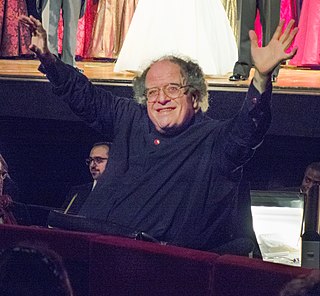A Quote by Jim Harrison
Fate has never ladled out hardship very evenly, and this frequently trips our often infantile sense of justice.
Related Quotes
Growing up, I was lucky that my dad was never out of work. I was very fortunate in one way: that I never experienced real hardship, because my dad is this real dynamo. He was always working, so I had a sense of the ups and downs and endless disappointments, but at the same time I was never worried that we couldn't eat or pay the bills.
Hardship, in forcing us to exercise greater patience and forbearance in daily life, actually makes us stronger and more robust. From the daily experience of hardship comes a greater capacity to accept difficulties without losing our sense of inner calm. Of course, I do not advocate seeking out hardship as a way of life, but merely wish to suggest that, if you relate to it constructively, it can bring greater inner strength and fortitude.
Fate is a misplaced retreat. Many people rationalize an unexplained event as fate and shrug their shoulders when it occurs. But that is not what fate is. The world operates as a series of circles that are invisible, for they extend to the upper air. Fate is where these circles cut to earth. Since we cannot see them, do not know their content, and have no sense of their width, it is impossible to predict when these cuts will slice into our reality. When this happens, we call it fate. Fate is not a chance event but one that is inevitable, we are simply blind to its nature and time.
To choose a hardship for ourselves is our only defense against that hardship. This is what is meant by accepting suffering. Those who, by their very nature, can suffer completely, utterly, have an advantage. That is how we can disarm the power of suffering, make it our own creation, our own choice; submit to it. A justification for suicide.
What is wrong with us human beings, and has been wrong since time immemorial, is that without ever stating it in so many words, we believe that we have entered the realm of immortality. We behave as if we are never going to die - an infantile arrogance. But even more injurious than this sense of immortality is what comes with it : the sense that we can engulf this inconcievable universe with our minds.
There is no easy formula for determining right and wrong livelihood, but it is essential to keep the question alive. To return the sense of dignity and honor to manhood, we have to stop pretending that we can make a living at something that is trivial or destructive and still have sense of legitimate self-worth. A society in which vocation and job are separated for most people gradually creates an economy that is often devoid of spirit, one that frequently fills our pocketbooks at the cost of emptying our souls.







































